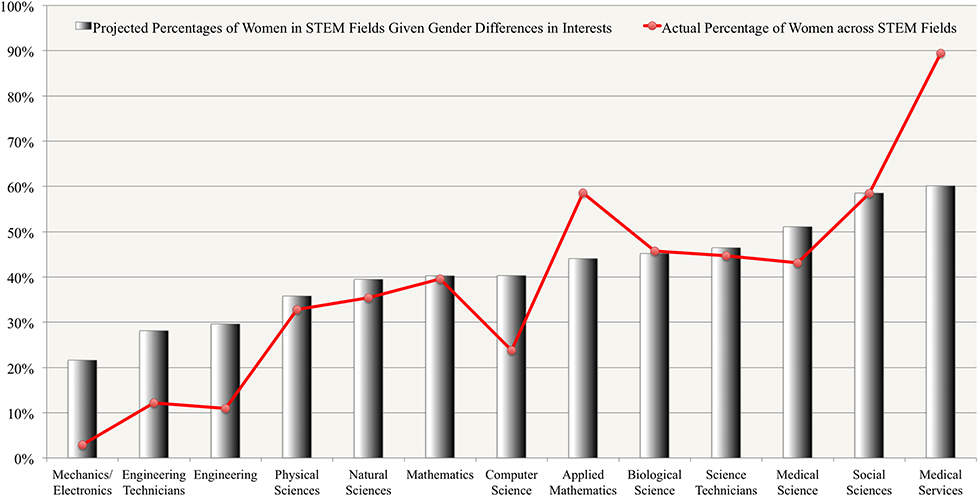Yeah, sorry for the misquote, there's a lot of different things discussed at the same time which makes it hard to keep track. Gender identity and biological sex are two different things but they correlate to such a high degree, that a causal link simply cannot be brushed aside. In fact, not many thing in biology and psychology correlate to such a high degree.
1. Should biological predispositions be things we as a society actually should follow?
If we should follow them, is a philosophical value problem that unfortunately does not allow for a universally true answer. What we certainly cannot do, is vilify people who defend such a stance. What I can say for certain is that most political systems that ignored and/or disrespected fundamental human nature failed horribly.
The best example would be
communism. Making everybody equal may be a laudable goal in theory, but absolute equality makes people unhappy. According to
relative deprivation theory, humans tend to define happiness relative to their peers. This means that people are happier, when they feel that they are better off than other people and they feel unhappy when they are worse off. This explains the fact that happiness distribution in
poor countries is largely the same as in rich countries:
If you make everybody the same, then nobody really feels happy or unhappy. Then of course there is also the fact that people feel happy when they are
rewarded for their hard work. In an absolutely equal society, like communism, making an effort does not make you happy, because you will never feel rewarded for working harder than other people. In that regard communism was not a tenable solution, because it simply failed to take into account human nature.
Now, I'm not making the case for unjust inequality, because if relative deprivation becomes too severe (i.e. the rich become richer and the poor become poorer), unhappiness will ultimately lead to civil unrest and destroy the social system (the French revolution would be such an example). But the way how humans perceive happiness would imply that some sort of healthy inequality is needed for societies to strive.
Please don't get me wrong, I'm not saying that women should be unequal to men (the example I stated does not pertain to gender difference). I'm merely saying that if certain differences are due to human nature, it would be counter-productive to engineer human society contrary to these biological predispositions. Yes, humans are to a certain extent rational beings, meaning that they can overcome their biological predispositions to a certain degree, but outright ignoring human nature makes them ultimately unhappy.
2. Biological predispositions don't account for other genders aside from the dominant 2.
As long as there is
equality of opportunity, everybody is free to shape their life according to their needs.
2. We have no way of measuring this or quantifying it or even providing strong casual links beyond vague theories...
Yes we do, there are many empirical studies,
like the one I linked above that manage to accurately measure the links between biological sex and gendered/vocational interests (here is a more palatable
summary):
An effect size of 0.93 is insanely huge, if you consider that the smallest statistically significant difference is 0.2, medium is 0.5, and large is anything above 0.8. Just to give you an idea of how much these differences matter, here is an approximate visualization on
Cohen's d scale. They differ almost a full standard deviation (the distance between 0 and 1):
If we take biological gender differences pertaining to vocational interests and compare the to the number of women working in STEM, we get the following picture:
As we can see, gendered interests match occupational numbers very closely in most fields. The study found that percentages of women within most STEM fields to mirror closely the gender differences in basic interests. Which would support to the preference-based explanation for gender disparities in STEM careers. The reason why so few women are in engineering, is partly because gendered interests diverge the most in these fields:
The study notes that the reason for that could also be gendered stereotypes (i.e. cultural influences). But you also have to take into account that, if given the opportunity, people tend to choose the field which match their strongest interests. So even if women have some kind of interest in mechanics, they still may have an even stronger interest in medical services. This would also explain why women are so over-represented in medical services, because they are a lot more people oriented than mechanics and electronics:
I really don't know how much more specific you can get. In case this is still 'too vague' for you, please show me any study that even manages to measure and/or quantify 'the patriarchy' in any perceivable way.
3. Biological predispositions is used, by some people, as a intellectual fill in for any gender difference where the reason for it isn't readily available, which is problematic for obvious reasons.
As you can see from the graphs presented above, there is still considerable overlap between men and women when it comes to their vocational interests. Nobody is arguing that biological predispositions are the end all be all to differences in STEM fields.
But what we certainly cannot do, is simply assume that these differences are mostly due to sexism and/or discrimination. Most people just look at percentages of women in a certain field and simply assume that there must be some kind of discrimination going on because the distribution is not 50/50. This is exactly the kind of reductive reasoning that people such as Peterson are complaining about.
If you watch Peterson's video with Cathy Newman where he specifically talks about the
multivariate approaches, that's exactly in line with the conclusions of the above presented study.
On the contrary, these kind of studies allow us to
better understand these kinds of differences and
if we can find huge discrepancies between natural interest and actual occupation numbers, we can assume that other environmental factors are at play and start a reasoned investigation. But so simply screech about female oppression everywhere we can see these distribution differences, is simply ridiculous and ultimately counter-productive.
4. Also, People who tend to subscribe to a "Biological predispositions" theory tend to completely ignore or downplay socialisation, which has obvious problems.
As explained above, it is quite the contrary. If distributions don't match natural interests, we can safely assume that other factors are at play.
In that sense, these 'biological' studies actually help us understand possible inequalities
a lot better than abstract ideological notions that cannot even be measured. No evolutionary biologist or psychologist is making the case that we should simply accept these differences, but we should carefully intervene only when we understand them better and when they are not the result of people's individual choices. Otherwise you end up pigeonholing.
Again, radical ideologues merely refuse to take these biological explanations into account, because they largely contradict their oppression narrative. If you're truly interested in a more equal society, people would be wise to pay more attention to these findings instead of blindly following a political dogma.






